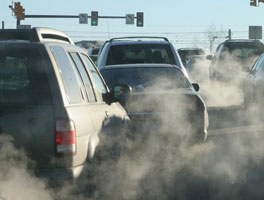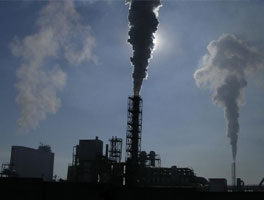 |
Dear readers,
This week marks the fifth anniversary of Paris Agreement, a historic deal propounded to mitigate the adverse impacts of climate change. Our ten data cards show why despite such a momentous move, GHG emissions have continued to rise and the dire impacts of climate change are imminent. The inequitable nature of the Nationally Determined Contributions (NDCs) calls for a more consolidated effort from developed countries to minimize their dependency on fossil fuels to restrict global warming at 1.5-C or 2-C. Moreover, despite the harmful impacts of climate change being widely known today, the possibility to shift to a sustainable energy system is still vague. After five years of the Paris Agreement, investing in blue carbon can be a new addition in the domain of carbon trading, but formulation of new rules, and providing assistance to developing countries is still a complex issue. Further, the necessary efforts that should be undertaken to achieve the ambitious targets of the Paris Agreement are somewhat missing as countries are not able to live up to their expectations of meeting the NDCs.
The UNEP’s Emission Gap Report has highlighted the need to use bio, green and synthetic fuels to minimize the contribution of the shipping and aviation sector to climate change, and the need for a green recovery post COVID-19 by decreasing the usage of fossil fuels. Further, the UNEP’s Production Gap Report has also emphasized the need to decrease the usage of fossil fuels exponentially to counter global warming. According to a Germanwatch report, India has maintained its 2-C compatibility on its NDC, but the country’s shift to renewable energy is imperative to contribute significantly to lowering the impacts of climate change. On the contrary, after maintaining its 2-C target, the Union Ministry of Environment has now allowed several power sectors companies to emit more quantities of poisonous gases into the atmosphere. In other news, BloombergNEF’s 2020 Climatescope has depicted a slump in the FDI for renewables in 2020, contrary to the upward trend shown in 2019.
The introduction of a glacial tax or a complete ban on fossil fuels in the Himalayan region could be an effective way to prevent the receding of glaciers. In other significant moment, the Antarctic Ocean can be of fundamental help in altering the global climate in a positive way owing to its capacity to capture heat and carbon. We also take a look at the realities of life during the climate crisis such as its impact on reproduction choices. And finally, we learn about the pitfalls of a climate friendly diet. |
|
 |
| |
 |
|
| |
|
|
| |
 |
|
| |
|
|
| |
 |
|
| |
|
|
| |
 |
|
| |
|
|
| |
 |
|
| |
|
|
| |
 |
|
| |
|
|
| |
 |
|
| |
| EXTREME WEATHER TRACKER |
| |
Post-COVID-19 focus must be on dropping fossil fuels: UNEP Emissions Gap report, 09 December 2020
|
 |
 |
|
|
| |
 |
|
| |
 |
 |
Climate change: What the Emissions Gap Report 2020 tells us, 09 December 2020
|
|
|
| |
 |
|
| |
|
|
| |
 |
|
| |
|
|
| |
 |
|
| |
|
|
| |
 |
|
| |
CLIMATE NEWS | SCIENCE| IMPACTS| POLITICS |
|
| |
 |
|
| |
|
|
| |
 |
|
| |
|
|
| |
 |
|
| |
|
|
| |
 |
|
| |
|
|
| |
 |
|
| |
|
|
| |
 |
|
| |
|
|
| |
 |
|
| |
|
|
| |
 |
|
| |
|
|
| |
 |
|
| |
|
|
| |
|
|